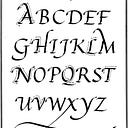OBSCURE FILM FRIDAY: WILDE ALLIANCE (1978 BRITISH TV SERIES)
Sometimes, the whole is not greater than the sum of its parts.
Such is the case of the short-lived series Wilde Alliance. First broadcast on ITV in January of 1978, the series ran just 13 episodes before being cancelled by the network in April of that year.
That a series failed to succeed is hardly unique, particularly in the late 70s when inflation and bad economic times made it just that much tougher to make a television show succeed. What is different is that Wilde Alliance had a lot going for it, at least on paper. Enough that one has to wonder about what might have been.
The premise of Wilde was that an upwardly mobile, middle-aged couple named Rupert and Amy Wilde (played by John Stride and Julia Foster) would be drawn into a mystery of the week and would indulge their passion for amateur sleuthing with a mix of humor and drama. In short, they were to be, as one reviewer (whose name I honestly can’t recall at the moment) put it, a modern-day Nick and Nora Charles.
The casting of Stride and Foster was one of the things the show got right. Stride was a veteran actor of tv and stage, and had starred in the very successful legal drama “The Main Chance” earlier in the decade. Foster, perhaps best known for her later work in the long-running comedy “Dad’s Army”, was an equally aplomb choice, gifted with an easy charm and gentle but clever wit. The two had real chemistry on screen, and felt very natural as a couple.
In a supporting role was Australian actor John Lee as “Christopher Bridgewater.” Bridgewater was the Wilde’s agent (Rupert was a writer, Amy was an artist of some sort), though his role on the show was often more like David Doyle’s “Bosley” on Charlie’s Angels than anything else. While not quite as engaging as either of the leads, Lee was pretty good in the part and provided a bit of comic relief as well.
The show never hurt for guest stars, either. Budget constraints (more on that in a bit) probably prevented the show from booking A-listers, but each episode had at least one well regarded British character actor in a prominent role — Anthony Bate, Desmond Lewellyn, Isla Blair, et al.
With all those positive elements on hand, it would seem that Wilde Alliance was on track to be a hit series. Good cast, good guests, a proven concept. What more do you need?
Well, a decent budget, for starters. I don’t know what the show’s creators budgeted for each episode, but it was woefully inadequate. The show just looked cheap. Given the hard economic times of the UK in 1978, one can forgive (or at least understand) a certain level of skimping.
Even at that, though, the show was often visually amateurish. One scene that I remember rather vividly was in the episode “Express From Rome.” The Wilde’s are supposedly on vacation in Italy and traveling by rail when they are caught up in the mystery du jour. It’s a familiar but trusty storyline, evoking everything from Murder on The Orient Express to some of the exploits of Peter Wyngarde in the popular 70’s series Jason King.
The problem with Wilde Alliance’s take on it was, they apparently didn’t have enough money to shoot on an actual train. Ponder that for a second. Instead, they shot on what was clearly a set made up to look like a train car, and blue-screened stock footage onto where the car’s window was so as to give the illusion they were traveling through the Italian countryside.
If it sounds a little cringey, it was. If you’re going to try to do stories with exotic locations, you have to find a way to make them look you know, exotic. Or at least like a real train.
The other failing of the show, and perhaps the one that ultimately doomed the show to failure, was the writing. It was bad, at times bordering on dreadful. Bad enough that it routinely undercut the talents of the cast, and made for some genuinely silly moments. I still wince at the episode where an investigation into the disappearance of a diplomat’s daughter leads to a woman named Dolores Quijano, a -wait for it — teenaged Mexican cello-playing Bolshevik. That the script also threw in some Dragnet-style “establishment vs counterculture” dialogue only adds to the pain.
Ultimately, Wilde Alliance is an interesting failure on its own merits. It does offer an opportunity to enjoy the talents of Stride and Foster, who were always enjoyable on screen no matter what else was going wrong in a particular episode. Overall rating: 6/10.
Follow me on Facebook for the latest updates and news regarding my blog and upcoming posts.
If you’d like to support my work, you can check out my Patreon page if you’d like!
